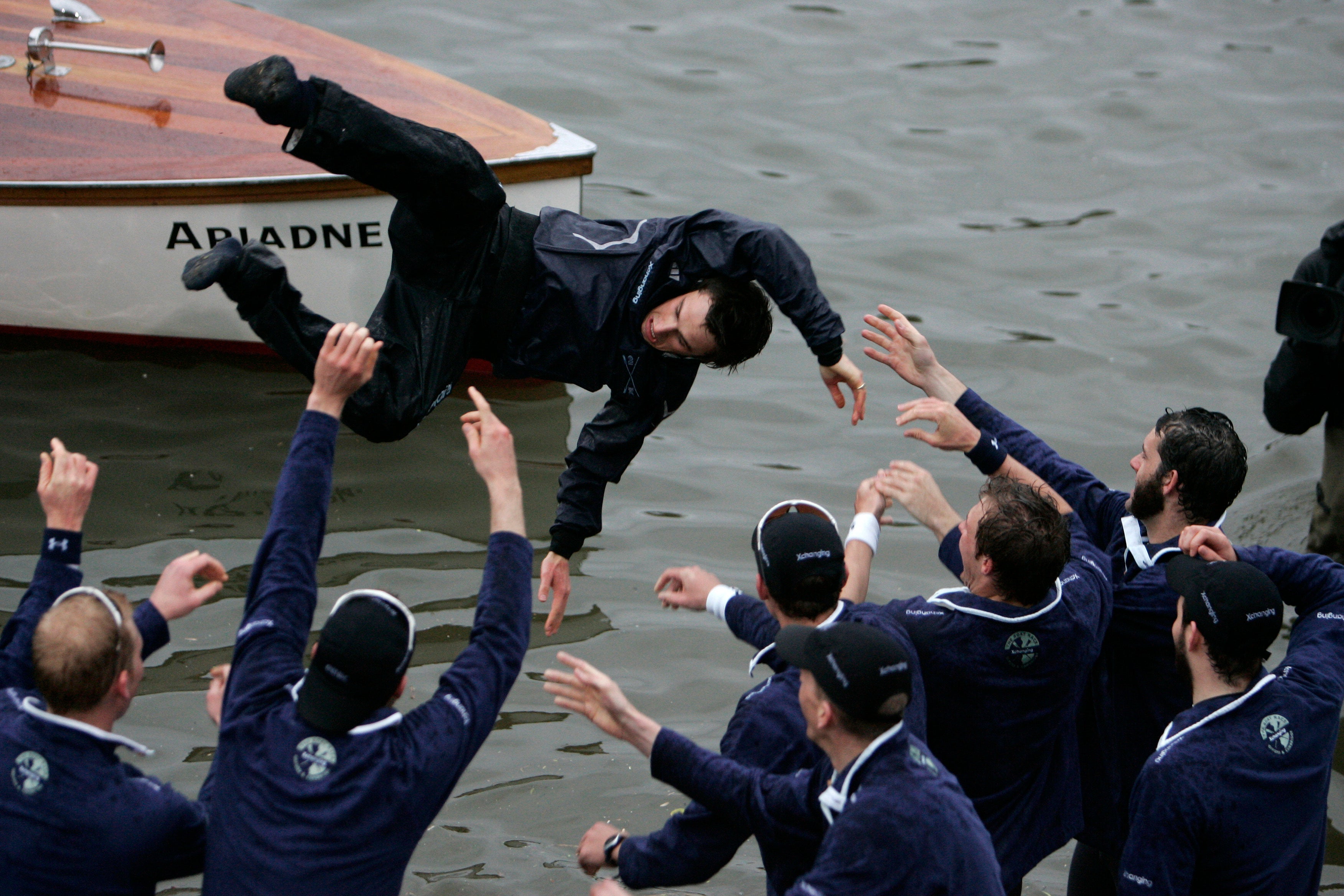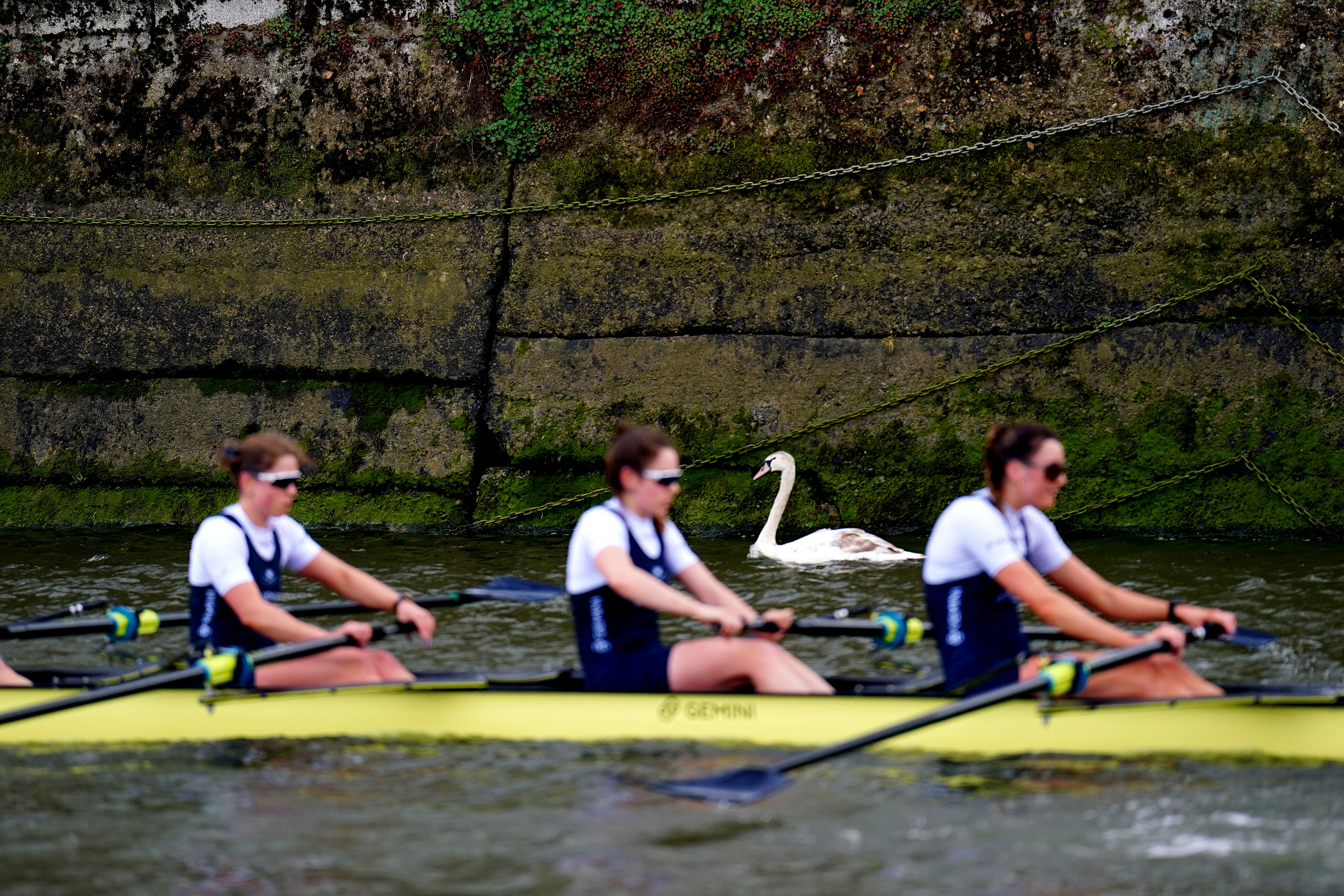Oxford coach hits out at ‘national disgrace’ pollution in the Thames ahead of Boat Race
Crew members have been warned about the risks of entering the water

Your support helps us to tell the story
From reproductive rights to climate change to Big Tech, The Independent is on the ground when the story is developing. Whether it's investigating the financials of Elon Musk's pro-Trump PAC or producing our latest documentary, 'The A Word', which shines a light on the American women fighting for reproductive rights, we know how important it is to parse out the facts from the messaging.
At such a critical moment in US history, we need reporters on the ground. Your donation allows us to keep sending journalists to speak to both sides of the story.
The Independent is trusted by Americans across the entire political spectrum. And unlike many other quality news outlets, we choose not to lock Americans out of our reporting and analysis with paywalls. We believe quality journalism should be available to everyone, paid for by those who can afford it.
Your support makes all the difference.The coach of Oxford’s crew taking part in the Boat Race described the pollution in London’s River Thames as a “national disgrace.”
Testing by a campaign group has found high levels of E.coli along a section of the Thames in southwest London that will be used for the historic race on Saturday.
Crew members have been warned about the risks of entering the water and advised to use a “cleansing station” at the finish area. The pollution has also cast doubt on the post-race tradition of throwing the winning cox into the water.
It comes as figures released by the Environment Agency showed the level of sewage spills into England’s rivers and seas by water companies more than doubled in 2023 compared to 2022.
There has been no suggestion that the Boat Race between storied universities Oxford and Cambridge that dates to 1829 will not go ahead. The women's race will precede the men's event along the same 4.2-mile (6.8-kilometer) section of the Thames.

But Oxford coach Sean Bowden has lamented the state of the water the crews will be competing on.
“It’s a national disgrace, isn’t it?” Bowden posed. “It would be terrific if the Boat Race drew attention to it. We are very keen to play a part and we recognize we have a role and a responsibility to it.
“Why,” he added in British newspaper The Daily Telegraph, “would you want to put your kids out in that?”
Invariably, the focus has turned to whether the winning crew will dunk its cox into the Thames at the end of the race.
E.coli bacteria normally live in the intestines of healthy people and animals. Most strains are harmless, cause relatively brief diarrhea and most people recover without much incident, according to the Mayo clinic. But small doses of some strains — including just a mouthful of contaminated water — can cause a range of conditions, including urinary tract infection, cystitis, intestinal infection and vomiting, with the worst cases leading to life-threatening blood poisoning.
“If there’s a health and safety problem, I don’t think we’ll be throwing him in because we don’t want to risk that,” said Harry Glenister, who has rowed for Britain and will compete for Oxford.
“It’s just too much of a risk. We support whatever the Boat Race is saying about the conditions in the water. We just hope we’ll win and then we’ll decide.”
Cambridge has won four of the last five men's races and leads the rivalry 86-81.
Cambridge has won six straight in the women's race.